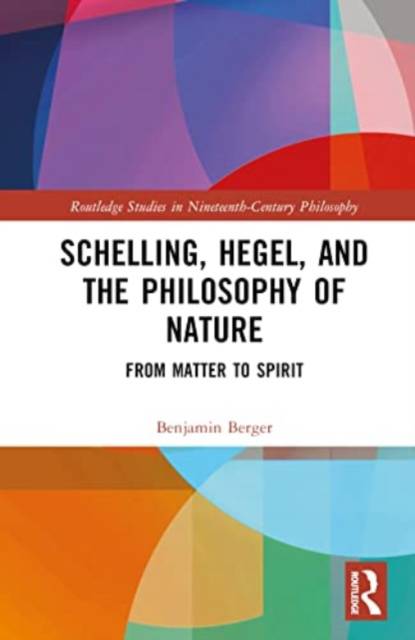
- Retrait gratuit dans votre magasin Club
- 7.000.000 titres dans notre catalogue
- Payer en toute sécurité
- Toujours un magasin près de chez vous
- Retrait gratuit dans votre magasin Club
- 7.000.0000 titres dans notre catalogue
- Payer en toute sécurité
- Toujours un magasin près de chez vous
Description
This book develops an original interpretation of the relationship between F.W.J. Schelling and G.W.F. Hegel. It argues that the difference between these philosophers should be understood in light of their shared commitment to the philosophy of nature and the idea that spirit, or humanity, emerges from the natural world.
The author makes a case for the contemporary relevance of German idealist philosophy of nature by walking the reader through its major themes, motivations, and arguments. Along the way, Schelling and Hegel are shown to develop key insights about the structure of reality and the dependence of living things and human beings upon inorganic natural processes. In elucidating the details of Schelling's and Hegel's respective philosophies of nature, the book challenges some of our most basic assumptions about the scope of philosophical inquiry and the relationship between matter, life, and human existence.
Schelling, Hegel, and the Philosophy of Nature will appeal to scholars and advanced students working on German idealism, as well as those interested in contemporary philosophies of nature and the topic of emergence.
Spécifications
Parties prenantes
- Auteur(s) :
- Editeur:
Contenu
- Nombre de pages :
- 392
- Langue:
- Anglais
- Collection :
Caractéristiques
- EAN:
- 9780367441814
- Date de parution :
- 30-11-23
- Format:
- Livre relié
- Format numérique:
- Genaaid
- Dimensions :
- 152 mm x 229 mm
- Poids :
- 707 g

Les avis
Nous publions uniquement les avis qui respectent les conditions requises. Consultez nos conditions pour les avis.






